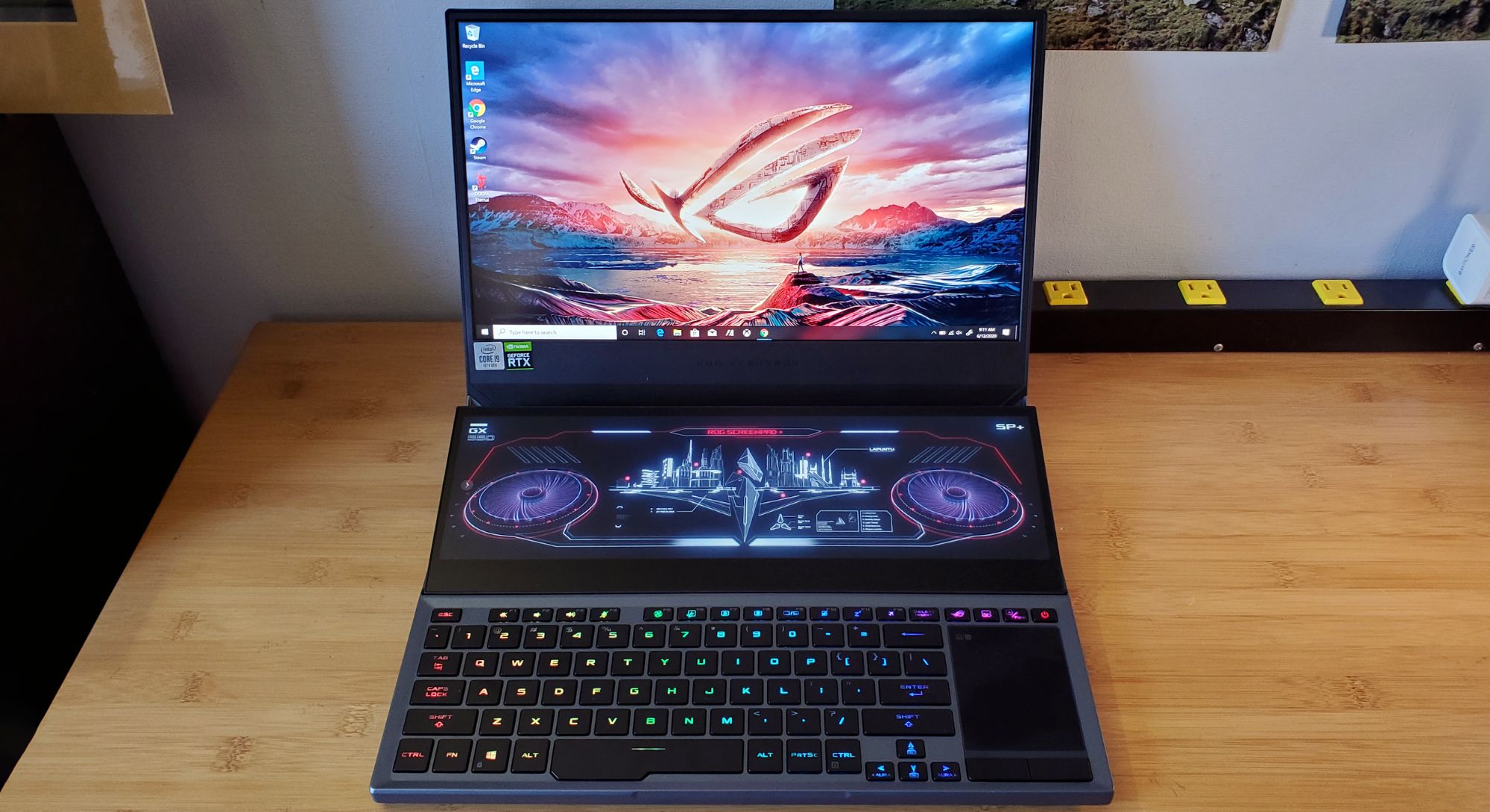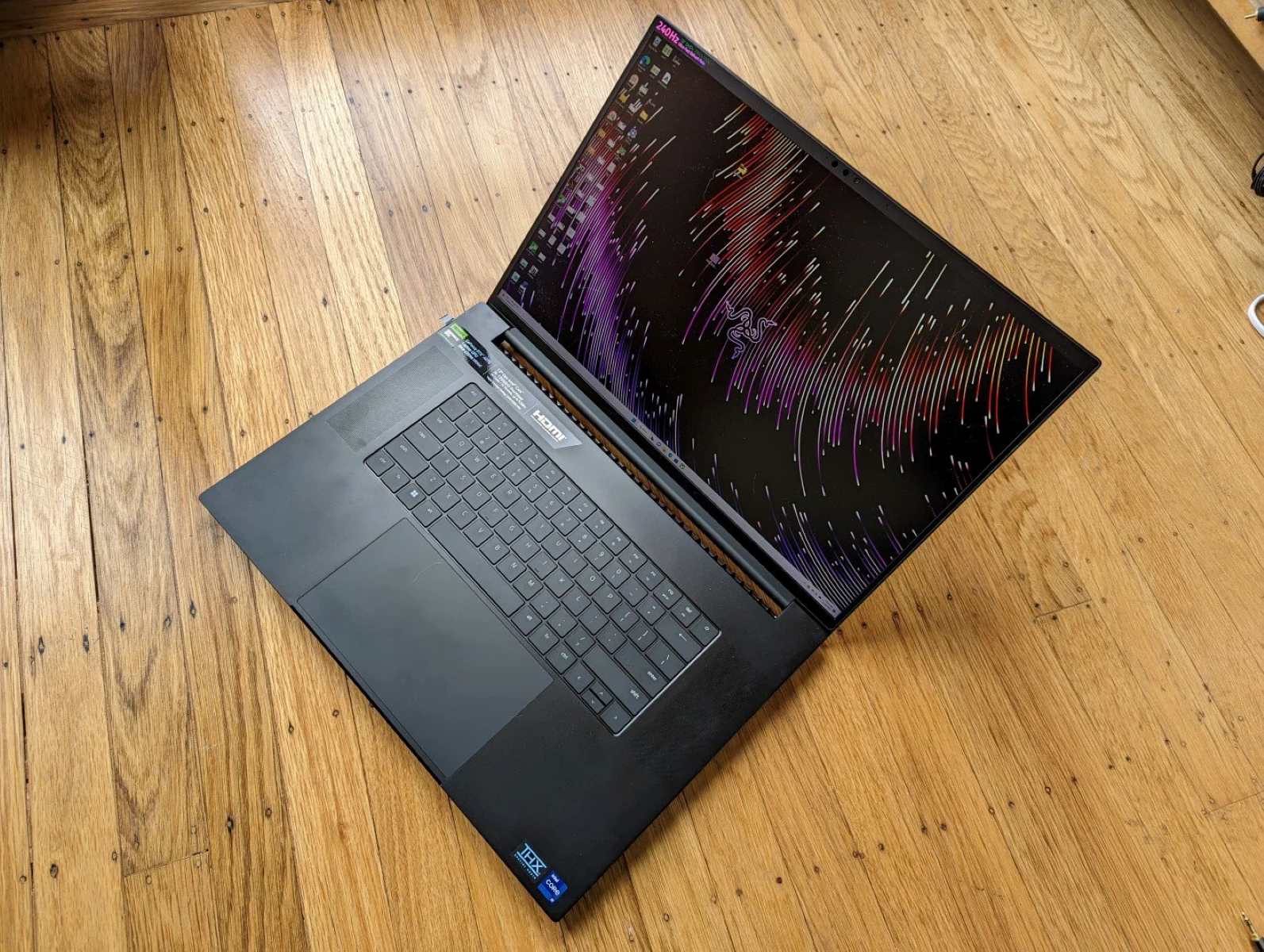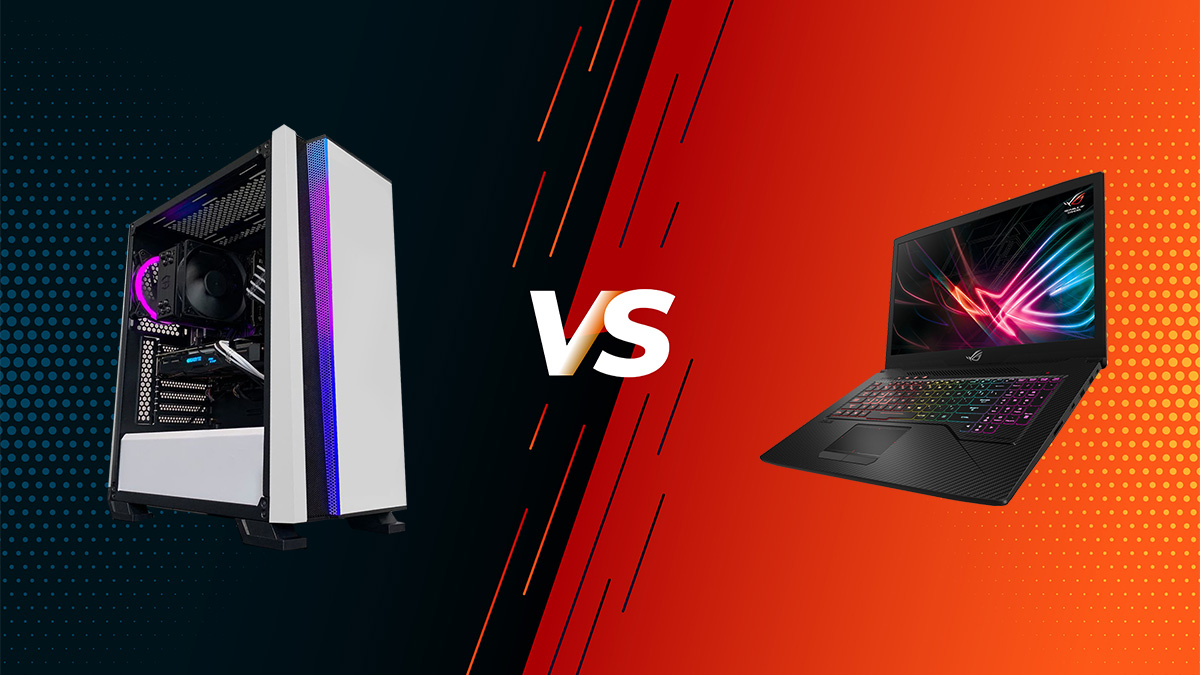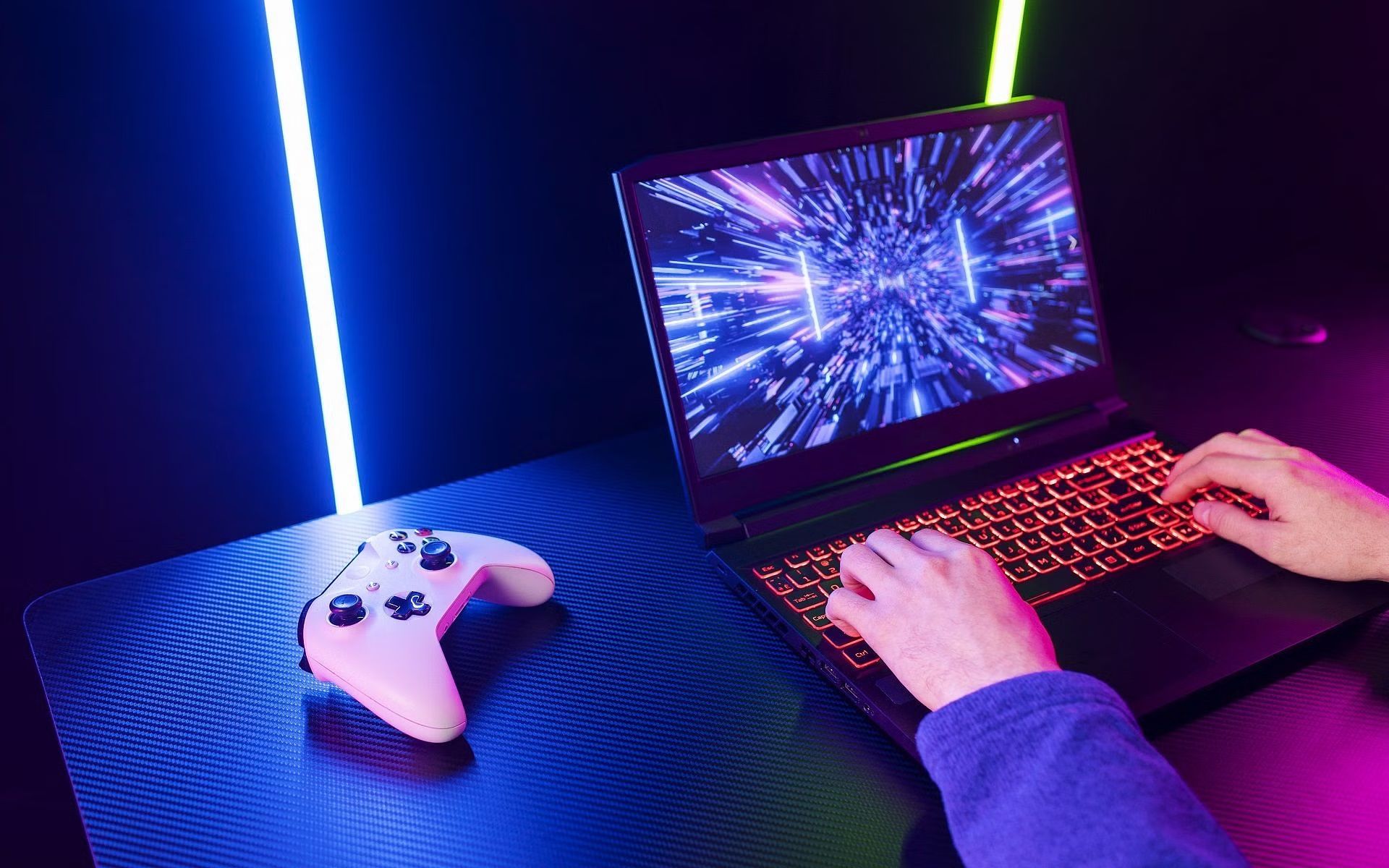Introduction
A gaming laptop is a powerful machine designed to deliver high-performance gaming experiences on the go. One of the crucial components that determine the overall performance of a gaming laptop is the processor. The processor speed, also known as clock speed, plays a vital role in executing instructions for gaming applications and ensuring smooth gameplay.
When it comes to gaming, having a standard processor speed is essential for seamless gameplay, fast rendering of graphics, and the ability to handle resource-intensive tasks. With advances in technology, gaming laptop manufacturers are constantly pushing the boundaries to offer faster and more efficient processors to meet the demands of modern gamers.
In this article, we will explore the importance of processor speed for gaming laptops, the factors that determine the standard processor speed, and how to choose the right processor speed for your gaming needs. We will also discuss common processor brands and their standard speeds for gaming laptops and touch upon the concept of overclocking to boost processor speed for enhanced gaming performance.
Whether you are a professional gamer or a casual enthusiast, understanding the significance of processor speed will help you make informed decisions when purchasing a gaming laptop and ensure that you enjoy a smooth and immersive gaming experience.
What is Processor Speed and Why is it Important for Gaming Laptops?
Processor speed refers to the clock speed or frequency at which the central processing unit (CPU) of a gaming laptop operates. It is measured in gigahertz (GHz) and represents the number of instructions the processor can execute per second. The higher the processor speed, the more calculations it can perform in a given time frame.
When it comes to gaming laptops, processor speed plays a crucial role in determining the overall performance and responsiveness of the system. The processor handles tasks such as game physics, AI calculations, and rendering complex graphics. A faster processor speed ensures that these tasks are executed quickly and efficiently, resulting in smooth gameplay, reduced input lag, and faster load times.
Having a high processor speed is especially important for gaming laptops because modern games are becoming increasingly demanding in terms of system requirements. Games with detailed environments, advanced physics simulations, and realistic graphics place a heavy load on the processor. If the processor speed is not sufficient, the laptop may struggle to deliver smooth gameplay and may experience frequent frame rate drops and lagging.
In addition to gaming performance, processor speed also affects other aspects of a gaming laptop’s functionality. It impacts the system’s multitasking capabilities, allowing you to run multiple applications in the background while gaming without significant performance degradation. A faster processor speed also enables quicker file transfers, smoother video playback, and faster application launches.
Overall, the processor speed is a critical factor in determining the gaming laptop’s ability to handle resource-intensive tasks and deliver an optimal gaming experience. By investing in a laptop with a higher processor speed, you can future-proof your gaming setup and ensure that you can enjoy the latest games with smooth and immersive gameplay.
Factors that Determine the Standard Processor Speed for Gaming Laptops
Several factors come into play when determining the standard processor speed for gaming laptops. Let’s delve into the key considerations that laptop manufacturers take into account:
- Processor Generation: Each processor generation introduces advancements in architecture and technology, leading to improved performance and efficiency. Newer generations of processors often have higher clock speeds as well, making them more suitable for gaming laptops.
- Number of Cores: Processor speed alone doesn’t determine the overall performance. The number of cores in a processor also plays a significant role. Gaming laptops typically feature quad-core or hexa-core processors, which allow for better multitasking and parallel processing, resulting in smoother gaming experiences.
- Cache Size: The cache is a small, high-speed memory within the processor that stores frequently accessed data. A larger cache size enables faster data retrieval, improving overall system performance. Gaming laptops tend to have processors with a larger cache size to handle the demands of modern games.
- Thermal Design Power (TDP): TDP refers to the amount of heat a processor generates and needs to dissipate. Gaming laptops require powerful processors, but it’s crucial to balance performance with thermal management. Higher TDP processors may generate more heat, requiring better cooling solutions.
- Intel or AMD: The choice between Intel and AMD processors is another factor that influences the standard processor speed for gaming laptops. Both brands have competitive offerings, and their latest processor models boast impressive clock speeds and performance. The decision ultimately depends on personal preference and specific requirements.
Manufacturers take all these factors into consideration when determining the standard processor speed for their gaming laptops. The aim is to strike a balance between delivering optimal gaming performance, power efficiency, and thermal management.
It’s important to note that the standard processor speed can vary depending on the laptop model and price range. Higher-end gaming laptops typically feature faster processors, while budget-friendly options may have slightly lower clock speeds.
By considering these factors, you can make an informed decision when choosing a gaming laptop with the right processor speed for your gaming needs. Finding the right balance between performance, budget, and future-proofing can lead to a satisfying gaming experience.
What is the Minimum Processor Speed Required for Gaming?
The minimum processor speed required for gaming depends on several factors, including the specific game requirements, the desired graphics settings, and the overall system configuration. While there is no fixed minimum processor speed that applies universally to all games, there are general guidelines to consider.
For most modern games, a quad-core processor with a clock speed of 2.5 GHz or higher is generally considered the minimum requirement. This ensures that the processor has enough power to handle the game’s calculations and physics. However, it’s important to note that some games may have higher processor speed requirements, especially if they are graphically demanding or feature complex AI algorithms.
Additionally, the minimum processor speed alone might not guarantee optimal gaming performance. Other components, such as the graphics card, RAM, and storage, also play a role in delivering a smooth gaming experience. It’s essential to have a well-balanced system with all the components working together efficiently.
The minimum processor speed required can also vary based on the desired graphics settings. If you aim to play games on lower graphics settings or older titles, a processor with a slightly lower clock speed might suffice. However, for high graphics settings or upcoming demanding games, a faster processor speed will ensure smoother gameplay and better overall performance.
Keep in mind that the minimum processor speed for gaming is constantly evolving as game developers create more advanced and resource-intensive titles. It’s always a good idea to check the recommended system requirements for the games you intend to play to ensure that your processor meets or exceeds the recommended specifications.
To summarize, the minimum processor speed required for gaming depends on the specific game requirements, preferred graphics settings, and overall system configuration. Aim for a quad-core processor with a clock speed of 2.5 GHz or higher as a general guideline, but also consider other factors such as graphics card, RAM, and storage to build a well-rounded gaming system.
How to Choose the Right Processor Speed for Gaming Laptops
Choosing the right processor speed for your gaming laptop is crucial to ensure optimal gaming performance. Consider the following factors when making your decision:
- Game Requirements: Start by checking the recommended system requirements of the games you plan to play. Look for the minimum processor speed and consider opting for a higher speed if you want to play more demanding titles or future-proof your laptop.
- Budget: Determine your budget for a gaming laptop. Higher processor speeds typically come at a higher price point. Consider your budget limitations and strike a balance between performance and affordability.
- Processor Generation: Look for the latest processor generation as they tend to offer better performance and efficiency. Higher clock speeds and improved architecture can significantly enhance gaming experiences.
- Number of Cores and Cache Size: Ensure that the processor has at least quad-cores and a sufficient cache size to handle multitasking and resource-intensive gaming tasks effectively. This will contribute to smoother gameplay and overall system responsiveness.
- Graphics Card: Consider the graphics card in your gaming laptop as it plays a significant role in delivering high-quality visuals. An imbalance between the processor speed and graphics card performance can lead to subpar gaming experiences. Aim for a harmonious combination.
- Future-proofing: Assess your long-term gaming goals. If you want your gaming laptop to remain competitive over the years, investing in a processor with a higher clock speed can help future-proof your system and ensure compatibility with upcoming games.
- Read Reviews: Take the time to read reviews from trusted sources and fellow gamers. Look for feedback on the processor’s performance, thermals, and any potential issues that may arise. This will provide valuable insights and inform your decision.
Remember that processor speed is just one aspect of a gaming laptop’s overall performance. It is essential to consider other components such as the graphics card, RAM, and storage to create a well-balanced system.
By carefully considering your game requirements, budget, and the other factors mentioned above, you can choose the right processor speed for your gaming laptop and enjoy a smooth and immersive gaming experience.
Common Processor Brands and their Standard Speeds for Gaming Laptops
When it comes to gaming laptops, there are two primary processor brands to consider: Intel and AMD. Both brands offer a range of processors with varying speeds and performance levels. Let’s explore some common processor brands and their standard speeds for gaming laptops:
- Intel: Intel has long been a dominant player in the processor market. Their processors are known for their strong single-core performance, making them well-suited for gaming. In recent years, Intel has introduced several generations of processors, each with improved speed and efficiency. Common Intel processor models for gaming laptops include the Core i5, Core i7, and Core i9 series. The standard clock speeds for these processors can range from 2.4 GHz to 5.3 GHz, with higher-end models offering faster speeds.
- AMD: AMD has gained significant popularity in the gaming community with their Ryzen series processors. These processors often offer more cores and threads compared to their Intel counterparts at a similar price point. The Ryzen 5, Ryzen 7, and Ryzen 9 series are commonly found in gaming laptops. AMD processors typically have slightly higher base clock speeds compared to Intel processors, ranging from 2.3 GHz to 4.6 GHz for standard models.
- Mobile Processors: Both Intel and AMD offer specific mobile processors designed for gaming laptops. These processors are optimized for power efficiency and thermal management while still delivering reliable performance. They often have slightly lower clock speeds compared to their desktop counterparts but offer ample power for gaming on the go.
It’s important to note that the specific clock speeds and performance levels can vary within each model range. For example, there may be different variants of Core i7 or Ryzen 7 processors with varying speeds. Additionally, laptop manufacturers may offer customization options to allow users to select different processor speeds within a specific model range.
When choosing a gaming laptop, consider the processor brand, model, and speed that aligns with your gaming requirements and budget. It’s recommended to research the specific processor models and read reviews to understand their gaming performance and reliability.
Ultimately, both Intel and AMD offer powerful processors that can meet the demands of modern gaming. The choice between the two largely comes down to personal preference, specific gaming needs, and budget considerations.
Overclocking: Boosting Processor Speed for Enhanced Gaming Performance
Overclocking is the practice of increasing the clock speed of a processor beyond its factory-set limits to achieve higher performance. It can be an effective way to boost the processor speed of your gaming laptop and enhance gaming performance. However, it is important to approach overclocking with caution and consideration.
By increasing the clock speed, you can potentially achieve faster calculations, improved frame rates, and reduced loading times in games. Overclocking can provide a noticeable performance boost, especially in CPU-intensive tasks such as gaming. However, it also comes with certain risks and considerations:
- Heat Generation: Overclocking significantly increases the heat output of the processor. This requires an efficient cooling system to prevent overheating, potential system instability, and potential damage to the components. Ensure that your gaming laptop has adequate cooling capabilities or consider investing in additional cooling solutions.
- Reduce Processor Lifespan: Running a processor at higher clock speeds for extended periods can potentially shorten its lifespan. Over time, the increased voltage and heat can cause wear and tear on the processor. Keep in mind that overclocking may void the warranty of your gaming laptop, so proceed with caution.
- Stability Issues: Overclocking can introduce instability if not done correctly. It may lead to system crashes, blue screens, or freezes during gameplay. It is crucial to gradually increase the clock speed, stress test the system, and ensure stability before settling on a final overclocked setting.
- Compatibility: Not all processors and laptops are designed for overclocking. Some models may have limited overclocking potential or restricted BIOS settings. Make sure your gaming laptop is compatible with overclocking before attempting any modifications.
If you decide to overclock your gaming laptop, it is essential to proceed with caution and gather the necessary knowledge and resources. There are various software tools and BIOS settings available that can simplify the process and minimize risks.
Additionally, it is recommended to closely monitor your laptop’s temperature, utilize stress testing software to verify stability, and make gradual adjustments to the clock speed while observing system behavior. Taking these precautions can help ensure a stable and safe overclocking experience.
It’s worth noting that overclocking is not necessary for every gaming laptop and may not provide a significant performance boost in all cases. Modern gaming laptops with high-end processors often come with sufficient power and speed to handle demanding games without overclocking. However, for enthusiasts and those seeking every ounce of performance, overclocking can offer a way to squeeze out additional performance if done correctly and responsibly.
Conclusion
Choosing the right processor speed is crucial when it comes to gaming laptops. The processor speed directly impacts the overall performance, responsiveness, and smoothness of gaming experiences. By understanding the importance of processor speed and considering various factors, you can make an informed decision when purchasing a gaming laptop.
Factors such as the processor generation, number of cores, cache size, and thermal design power (TDP) play a role in determining the standard processor speed for gaming laptops. Intel and AMD are the common processor brands, each offering a range of processors with different speeds and performance levels.
Additionally, considering the minimum processor speed required for gaming, budget limitations, future-proofing, and reading reviews are essential in making the right choice. Building a well-rounded gaming system that includes a balanced combination of processor speed, graphics card, RAM, and storage is crucial for optimal gaming performance.
For those seeking an extra performance boost, overclocking can be considered. However, caution must be exercised to avoid potential risks such as heat generation, reduced processor lifespan, stability issues, and compatibility limitations.
In conclusion, processor speed is a critical consideration for gaming laptops. By understanding the factors that determine the standard processor speed, considering the minimum requirements for gaming, and making an informed decision based on your specific needs and budget, you can ensure an enjoyable and immersive gaming experience on your gaming laptop.

























